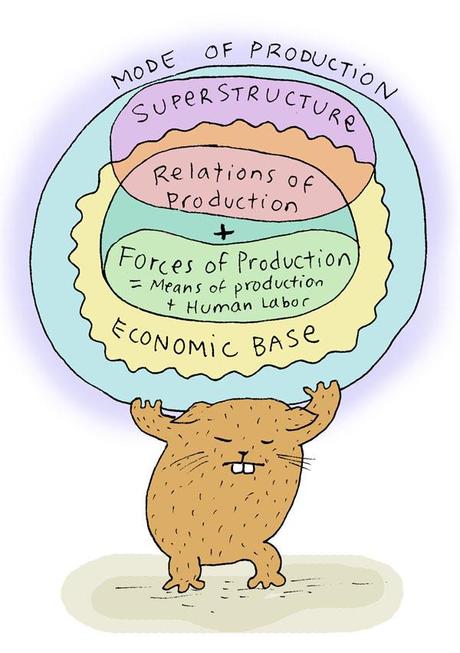Over the summer I belatedly got round to reading Robin Ridington’s Little Bit Know Something: Stories in a Language of Anthropology (1990). Ridington is an anthropologist who has done extensive fieldwork among the Beaver Indians, a northern Apathaskan people who call themselves Dunne-za (“real people”). The book is a collection of articles that Ridington published over two decades, including a 1982 article, “Technology, World View, and Adaptive Strategy in a Northern Hunting Society,” that is surely one of the best things I’ve read in years. Here are some excerpts, drawn from different parts of the essay:
The study of symbol systems is left largely to the mythologists and symbolic anthropologists, even though within that tradition there are strong suggestions that mythic beliefs and practices might be viewed as a form of technology.
In thinking about hunting and gathering people who must move frequently from place to place, I suggest that technology should be seen as a system of knowledge rather than an inventory of objects. The essence of hunting and gathering adaptive strategy is to retain, and be able to act upon, information about the possible relationships between people and the natural environment.
Hunters and gatherers typically view their world as imbued with human qualities of will and purpose. The pervasive animism of such people may be viewed as a symbolic structure, within which life-giving relationships between people and their environment may be most effectively kept in mind.
Information about states of mind and states of nature was considered essential to survival. The possession of information was far more important than physical possessions. In order for a person to take effective action in the world, he or she would have to “know something.” A person who “knew something” was thought of as a person with power.
The Beaver people viewed human experience as a life-sustaining network of relationships between all components of a sentient world. They experienced their world as a mosaic of passages and interactions between animate beings in motion against the backdrop of a terrain that was itself continually in process through the cyclical transformations of changing seasons.
Success or failure in hunting depended on a person’s ability to conceptualize and control the mosaic of relationships between people, animals, and celestial bodies. Although hunting and gathering people can do little to transform nature, they can and do devote considerable energy to understanding it. The Beaver concept of “knowing something” as a sign of empowerment typifies how many hunting and gathering people have directed their energies.
The pervasive animism and shamanism of hunting and gathering cultures may be viewed as systems of thought and practice that articulate associations between human will and environmental potential. Rather than being unrealistic attempts to control nature, as Marx suggested, the beliefs and practices of hunting and gathering animism and shamanism are eminently realistic techniques for controlling the relationships people bring into being between themselves and nature.
As I have attempted to illustrate in my description of Beaver world view, technology and adaptive strategy — the hunting and gathering mode of production — may be described as one in which knowledge of the environment is a genuine source of power that may enable people to regulate their relations to it. I have argued, in fact, that knowledge is a fundamental means of production in hunting and gathering societies.
If knowledge can be accepted as a basis of technology in the hunting and gathering mode of production, then shamanic and animistic beliefs and prctices are more like forces of production than illusory representations of productive forces.
Hunting and gathering people are not concerned with the overall transformation of the environment. This does not mean, however, that they feel any less in control of their lives than do agricultural people. It would be mistaken to view their shamanic and animistic beliefs and practices as fantasies indulged in because of their fundamental powerlessness. Rather, these beliefs and practices emphasize knowledge as the basis of power. Through them, individuals are trained to study the resource potential of their environment and to bring their own lives into life-sustaining relationships with the world of nature.
Ridington’s article is profound and I have a great deal to say about it. As you can see, it both echoes and presages a number of major scholars in this field: Marx, Hallowell, Horton, Godelier, Descola, and Ingold. I plan to do two and perhaps three posts on it, and this number could increase depending on comments.
In preparing for this, I’m wondering whether any of my readers have access to the original article which appeared in the Canadian Review of Sociology and Anthropology? My institution does not subscribe to that journal, so I’m working from the chapter in Ridington’s book. It would be helpful to have the article in pdf. If someone can send it, that would be great and much appreciated.


